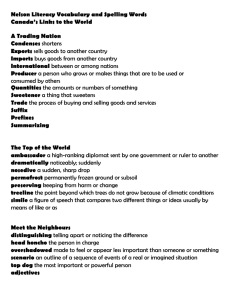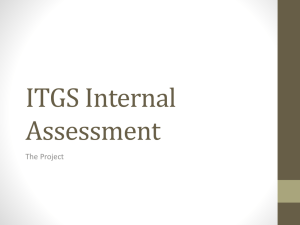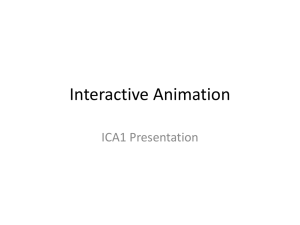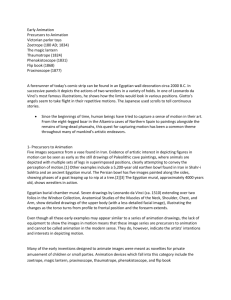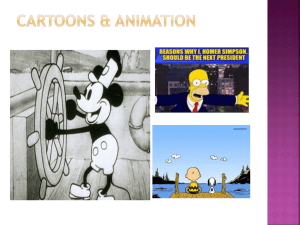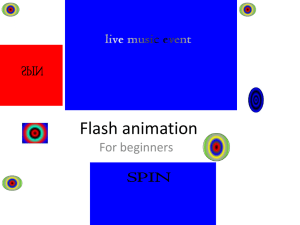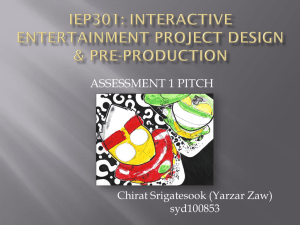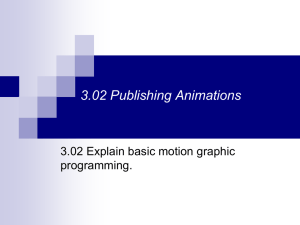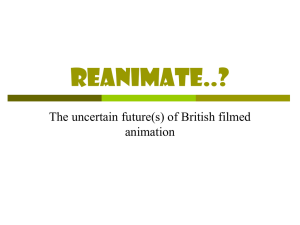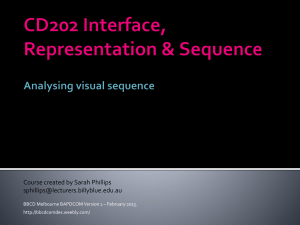CSC 251: Computer animation
advertisement
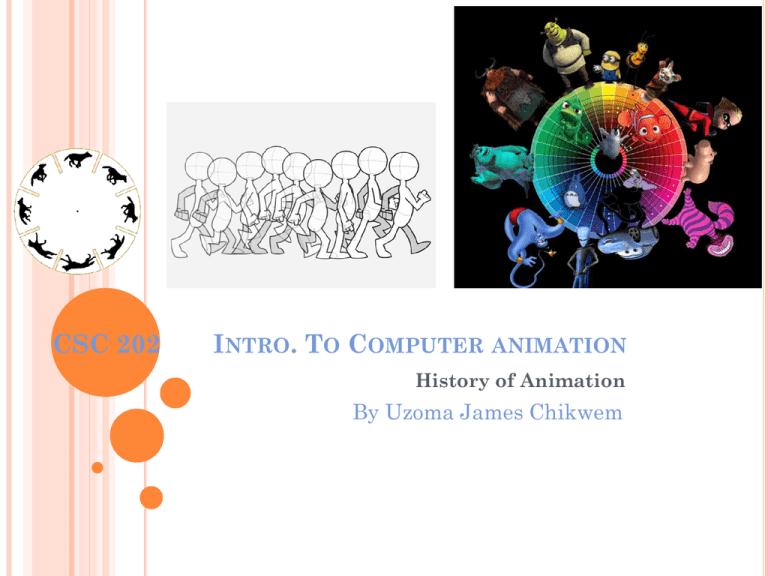
CSC 202 INTRO. TO COMPUTER ANIMATION History of Animation By Uzoma James Chikwem DEFINITION Computer: an electronic device designed to accept data, performs high-speed mathematical or logical operations, processes information and displays these operations on the screen. Animation: The state of being full of life or vigor, liveliness or portraying the illusion of motion. ANIMATED OR NOT? Were cave paintings the first animated images ? ANIMATED OR NOT? 4000 years old Were burial chamber mural designs the first animated images ? ANIMATED OR NOT? Iranian Vase motion designs is considered as one of the first forms of animation ever 5200 years old ANIMATION ON EARLY DEVICES Magic Lantern (1650) Predecessor of the modern day projector! Images would display motion as slides, or plates, moved back and forth. Thaumatrope (1824) A disk, or card, with a painting on each side Attached to two pieces of string. Twirled quickly between the fingers the two pictures appear to combine into a single image. ANIMATION ON EARLY DEVICES Phenakistoscope(1831) Also known as Magic disc. Consists of a disk containing a sequence of images, around the circumference, set like a ring. When spun rapidly created the illusion of motion, or animation. Zoetrope(1834) Meaning the “Wheel of Life”. An adaptation of the Phenakistoscope. Cylindrical spinning device with several frames of animation printed along the interior circumference. ANIMATION ON EARLY DEVICES Flip Book(1868) Flip book is a collection of animated images intended to give the illusion of movement, or animation. By bending the pages back and then rapidly releasing the pages one at a time so that our perception of vision is fooled into creating motion or animated short clip. DEVICE THAT LEAD TO THE AGE OF ANIMATION Praxinoscope (1877) the successor to the zoetrope. used a strip of pictures placed around the inner surface of a spinning cylinder. improved on the zoetrope by replacing its narrow viewing slits with an inner circle of mirrors. In 1889, an improved version capable of projecting images on a screen from a longer roll of pictures. This allowed him to show hand-drawn animated cartoons to larger audiences. ANIMATION TECHNIQUES STILL USED TODAY Stop-Motion Manipulate a character or object to appear to move on it’s own. Moved in small increments between frames. Creates illusion of movement when played in sequence. Often called clay animation or claymation. Used in popular movies like ? ANIMATION TECHNIQUES STILL USED TODAY Cel-technique Also known as cel-animation an important innovation to traditional animation allows some parts of each frame to be repeated from frame to frame, thus saving labor. a sheet of transparent cellulose acetate used as a medium for painting animation frames. can be laid over other cels and/or a painted background, then photographed. TIMELINE BEFORE VIDEO OR FILM ANIMATION Vase Design 3000 B.C. 1800 B.C. Burial Mural Blueprints Thaumatrope 1510 1650 Magic Lantern Zoetrope 1824 1831 Phenakistoscope Praxinoscope 1834 1868 Flip book 1877 TIMELINE FOR FRAME OR STOP-MOTION ANIMATION Praxinoscope 1876 Praxinoscope II 1897 1888 1888 Kinetoscope Stop-Motion 1892 Cinematography 1912 Cel-Technique
